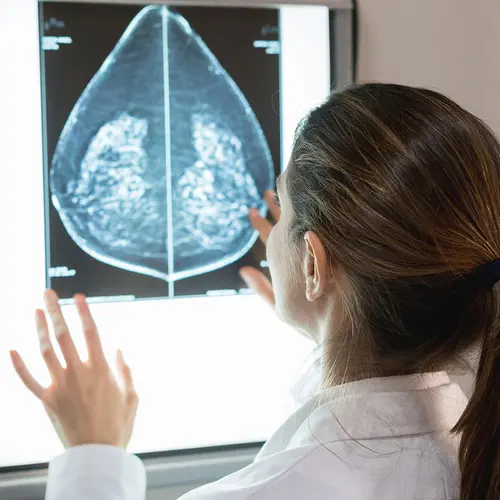You may have a million excuses not to get that annual mammogram, but your reasons may not be as good as you think. Don't blow off your appointment before you get the facts behind these myths and defenses.
1. Breast cancer doesn't run in my family, so I don't need to go.
It's true that if breast cancer runs in your family, you're more likely to get it, especially if your sister or mom had it. But most women who get breast cancer -- 85% -- have no family history of the disease. So get checked anyway.
2. I'm too young.
Breast cancer is most common in women 55 or older. But it can still happen to younger women. There are different guidelines about when to start. Ask your doctor what's right for you.
3. The radiation is too risky.
You'd get a lot less radiation from a mammogram than what you'd get on a plane trip from Houston to Paris, says Therese Bevers, MD. She is medical director of the Cancer Prevention Center at the University of Texas MD Anderson Cancer Center in Houston. You know you'd take a free ticket to Paris in a heartbeat. Don't think twice about a mammogram either.
4. I'm afraid of what they might find.
Don't jump to conclusions. Remember, 80% of callbacks turn out to be benign, Bevers says. Also, a mammogram doesn't change anything. It just gives you information about what's already there. If a mammogram finds something that turns out to be cancer, wouldn't you rather know about it sooner than later?
5. It's too expensive.
Not anymore. Mammograms are free under the health care reform law (the Affordable Care Act), with no deductibles and no copays. Medicare also covers mammograms. If for some reason you fall through the cracks, there are other free or low-cost options. Call the National Cancer Institute at 800-4-CANCER (800-422-6237) for information.
6. It's too painful.
Mammograms are pretty quick. Any discomfort is brief, says Debbie Saslow, PhD, director of breast and gynecologic cancer at the American Cancer Society. It can help to:
7. I don't have any lumps.
8. I'm too busy.
Make the time. Mammograms only take 15-30 minutes, and it's part of your routine health care. "It's a lot more time-consuming if you get sick," Saslow says.
9. My breasts are too dense.
Mammograms may be less helpful in finding cancer in dense breasts, but they're not useless. You now have the option of 3-D mammography or a second check with an ultrasound or MRI.

